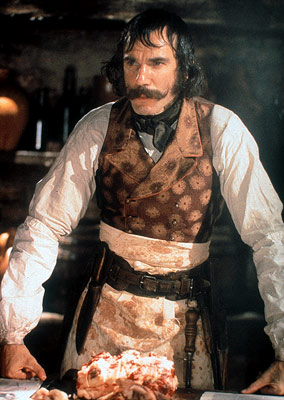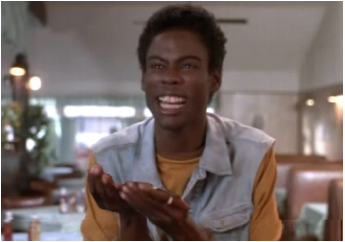Editor’s note: Evan Peelle is a Los Angeles-based marketer with experience in web-based startups and conducting online marketing campaigns, including PPC, mobile, and search marketing.
“Money alone isn’t enough to bring happiness . . . happiness [is] when you’re actually truly ok with losing everything you have.” – Tony Hsieh, Delivering Happiness: A Path to Profits, Passion, and Purpose
Disclaimer: This article’s sole purpose is to address the core principles of advertising in a new and edgy way. This is not for the faint of heart or those highly sensitive to socially charged public issues. So suck it up and buckle up. You’re about to be taken to school (of hard knocks). Class is now in session.
Everyday we surge past the homeless never stopping to consider the power they possess to advertise effectively with no budget(literally). Startups could learn a thing or two from these highly misunderstood band of street-smart entrepreneurs.
Seriously, they ARE testament to the fact that you and I have hard-wiring to market to others in attempts to meet our survival needs(both in business and in life). Carefully observe how these 5 use cases display the 5 levels of advertising power.
Note: You’re probably working at a business right now that’s been founded on one or more of these five principles. Observe carefully.
The Screamer
“The truth isn’t the truth until people believe you, and they can’t believe you if they don’t know what you’re saying, and they can’t know what you’re saying if they don’t listen to you,. . . unless you say things imaginatively, originally, freshly.” – William Bernbach (1911 – 1982), Founder of DDB Int Agency.
The Screamer curses yelling absurdities to get attention. His audience doesn’t understand his message no matter how loud) and they avoid him like the plague. To survive in business it’s essential to have at least ONE clear message. Lack of empathy for prospects could cost us our lunch.
Hype works the same way, it’s divorced from a target audience and falls short of connecting with target audiences and what’s meaningful to them.
“Advertising is a tax for having an unremarkable product.” -Robert Stephens, Founder of the Geek Squad.
Begging is the oldest profession. He’ll get face-to-face asking directly for what he wants. “Change please?”, or the more ambitious, “Got five dollars”. He gets results by asking clearly for what he wants. Though his business is severely limited by the steep investment of time and energy.
It’s easier to receive payment when you can ask clearly and directly… if you ask enough people.
“Make it simple. Make it memorable. Make it inviting to look at. Make it fun to read.” – Leo Burnett (1891-1971), Advertising Executive, Named New York Times 100 Most Influential Men of the 20th Century.
These guys invented automated advertising. He finds heavy traffic(literally) and posts his message (Ad) for the world to see. The message gets leveraged across 1000’s of eyeballs everyday with little to no effort on his part. As a business using leverage to his benefit. His message appeals to an almost infinite number of people. He’d make a kick-ass Search Engine Marketer.
His strategy is to present clear compelling messages in front of large audiences.
“Let us prove to the world that good taste, good art, and good writing can be good selling.” – William Bernbach (1911-1982), American advertising creative director.
The street performer presents his talent to a captive audience. He salts the crowd, incites interaction, and gets involvement, making them a part of his own show. Using juggling, strumming, and dancing as sweat equity he demonstrates entertainment value. All the while risking lighting himself on fire (risk liability). As a business he’s a step above, understanding the power of giving value up front and then asking for money after delivering. This keeps them coming back for more, over and over again.
The talent model is one of exhaustive effort yet generates customer loyalty through participation.
“What really decides consumers to buy or not to buy is the content of your advertising, not its form.”- David Ogilvy (1911-1999), Dubbed The Father of Advertising
These kids were tossing money off the pier. They were playing a game made by a homeless guy. He had made it out of cardboard, cups, and a blanket. People tried to get their money into the various cups ‘winning points’ in hopes to sink one into the elusive jack-pot!
It was a cash(coins) machine(asset), accumulating wealth while he was on the beach getting tan sipping mojitos somewhere. It was a funnel that attracted prospects with a value proposition. A perfect example of a user driven experience (giving the audience tools to play the game.)
Building an automated funnel that generates cash while you’re not around (no labor, low overhead) is the zenith of entrepreneurship. Do this and your golden ticket to financial freedom is guaranteed.
Live Your Own Dream
Does that sound familiar to any of us? The entrepreneur’s dream; raking in dough while sipping margaritas on the beach. Here’s the recipe to turning your startup into an automated advertising cash machine.
- Listen to your customer carefully.
- Use one clear and direct message to speak to their needs.
- Find out where your prospects already are, then place your messages in front of them.
- Give value up front. Incentivise them to take action.
- Build your product around their secret hopes / desires or fears / frustrations.
Follow these timeless and proven laws of advertising to supercharge your start up, blow past your break even point, and wiggle into profit. Live it up my friends and make an asset that will pay you in your sleep (on the beach).






